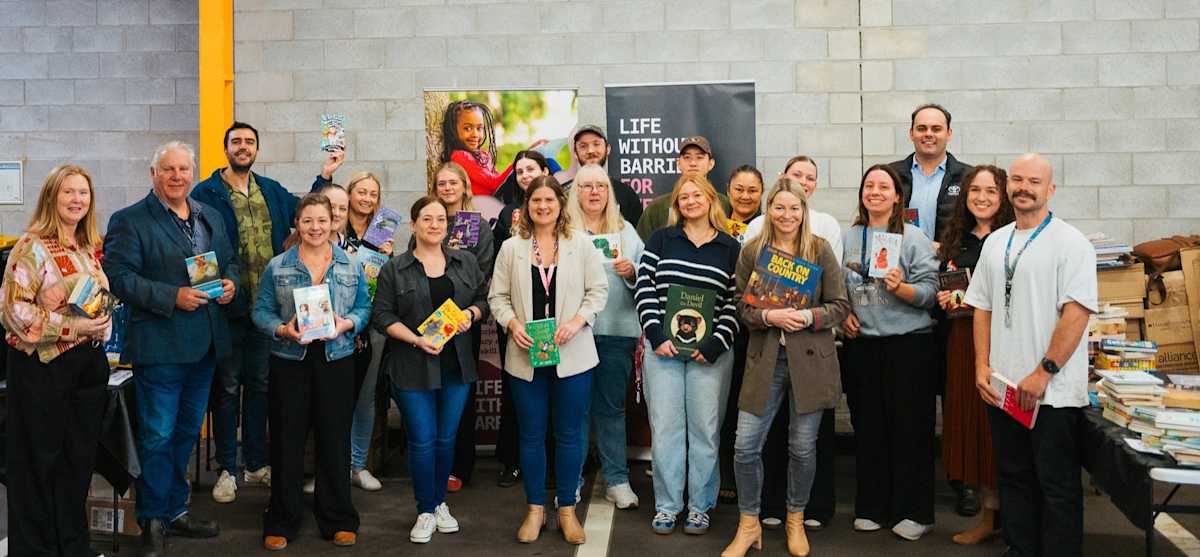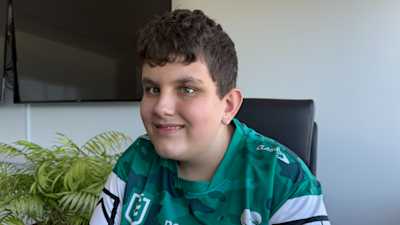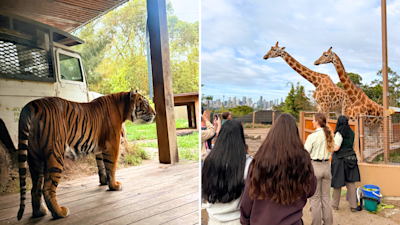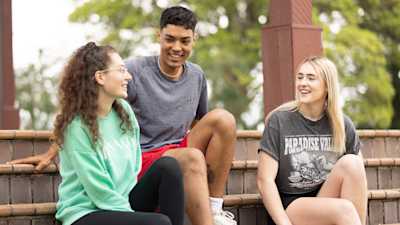"We hear from children and young people in care that they want to be part of the conversation. " Every conversation matters.
As National Child Protection Week approaches, 7-13 September 2025, the focus is firmly set on creating communities that prioritise the safety and wellbeing of every child. The theme for this year is 'Every conversation matters: shifting conversation to action'.
We are dedicated to working to ensure that children have the best start in life.
Our Accountability Statement
Life Without Barriers has long been guided by the voices of the people we support. This year, that commitment has been strengthened with the development of our first Accountability Statement, created in collaboration with the National Youth Advisory Group (NYAG).
For young people in care, accountability means being heard, being informed, and being part of decisions about their lives. For Life Without Barriers, it means creating systems where those expectations are not optional, but standard practice.
"We hear from children and young people in care that they want to be part of the conversation. They want to know that they've been heard and that things are changing as a result of what they've said and experienced." Said Anthony Raitman, Executive Director Strategy and Risk, Child, Youth and Family.
"With our National Youth Advisory Group, we're making an effort to not just listen to young people, but to make changes as a result of what we hear from them and turn our conversations into actions that make a difference in people's lives."
Family and community
Life Without Barriers partners with the government to create lasting systemic change across Australia, so that more children can thrive within their own families and communities, and the need for child protection services is minimised.
This is crucially important for Aboriginal and Torres Strait Islander children. We are working with the Secretariat of National Aboriginal and Islander Child Care (SNAICC - National Voice for our Children) to transition Aboriginal and Torres Strait Islander children we support in out-of-home care to community control, so they can grow up safe and cared for in family, community, and culture. This partnership is founded upon the Family Matters Building Blocks.
You can read more about the RAP and the Transformation project here.
Image: An Aboriginal woman holding a young Aboriginal boy in the kitchen smiling at the camera.
Starting with Safety
We Put Children First
In 2015, we established our ‘We Put Children First’ campaign, which is our stance on child safety and wellbeing. All staff and carers are required to be a part of this commitment, to recognise the difference between acceptable and unacceptable behaviours and understand the importance of speaking up about child safety concerns.
Every day, Life Without Barriers offers support and care to children. We want every one of those children to feel as safe and respected as they should.
Read about our We Put Children First commitment.
The Sexual Safety Series
The Sexual Safety Series is a series of videos for young people that aim to help prevent sexual abuse and sexual assault. Life Without Barriers developed the Sexual Safety Series as part of our ongoing commitment to the safety of children and young people.
"Providing accurate information to young people about safe and respectful relationships is essential for keeping young people safe in real life and online." Said Melinda Clarke, Manager Child Safe Organisation.
We know that when children and young people know the difference between appropriate and inappropriate sexual behaviour it is a key protective factor against sexual abuse.
As for the six-part series, you can watch the videos now! Head to the 'The sexual safety series' playlist on YouTube to save the videos for later.
The SAFE Series
Life Without Barriers provides the SAFE Series, published by the NSW (New South Wales) Children’s Guardian, to young children in out-of-home care. The set of children’s books contains empowering personal safety messages. Recently, we have been able to provide the SAFE Series to children supported by other organisations too, thanks to a Perpetual IMPACT grant.
"The SAFE books are evidence based, high quality resources that provide clear and engaging messages to young children about safety." Said Melinda Clarke, Manager Child Safe Organisation.
For teenagers, we are working on a series of videos about respectful relationships and consent, to help young people have the best start in their relationships.

Image: Four different SAFE book covers. They have cartoon children and text.
Starting with education
As a major provider of out-of-home care, we recognise that we play an important role in children’s lives – we are responsible for ensuring that children have the best start in life, including their education journey, and supporting them reach their learning goals and full potential.
Our 2023-2025 Education Strategy Learning Without Barriers outlines our commitment to working together to ensure our education systems are inclusive.
Hook into Books™
We aspire to see all children and young people in out-of-home care given opportunities to learn to love reading and enhance their own literacy story. Through our annual Hook into Books™ campaign, we support children and young people to experience literacy and language enhancement through exposure to books, cultural connections, and digital literacy resources.
You can join the campaign here.

Image: Staff from Life Without Barriers and Toyota holding up books in the Milton office.
What is National Child Protection Week?
National Child Protection Week is a campaign spearheaded by NAPCAN which aims to promote a safe and supported life for every child, now and into the future. Under the banner of 'Every Child in Every Community Needs a Fair Go,' the initiative calls for collective efforts to ensure that children are heard, respected, and safe in their environments.
Talking with children about safety
NAPCAN has shared some ways for adults to help children feel safe:
Support children to identify trusted adults (both within the family and outside) they can talk to, if they are worried, upset, or don’t feel safe. Make sure these adults know they are on the child’s list.
Remind children that they can talk to you or a trusted adult about anything, no matter how big or small their worry might be.
Talk to children about how they know when they feel safe or unsafe. Help them to listen to their early warning signs (how their body feels), and to trust their feelings and instincts.
Use everyday activities as opportunities for conversations (e.g. preparing meals and snacks, going for walks, playing, shopping). If children are used to having lots of communication, it can make it easier to talk when big or tricky issues come up.
Be open to talking about all kinds of feelings, including anger, joy, frustration, fear and anxiety. This helps children to develop a ‘feelings vocabulary’.
NAPCAN is encouraging everyone to join the campaign using hashtags #NCPW and #NCPW25.
For more information and to get involved, visit NAPCAN's website where you can find resources, posters, and videos!


